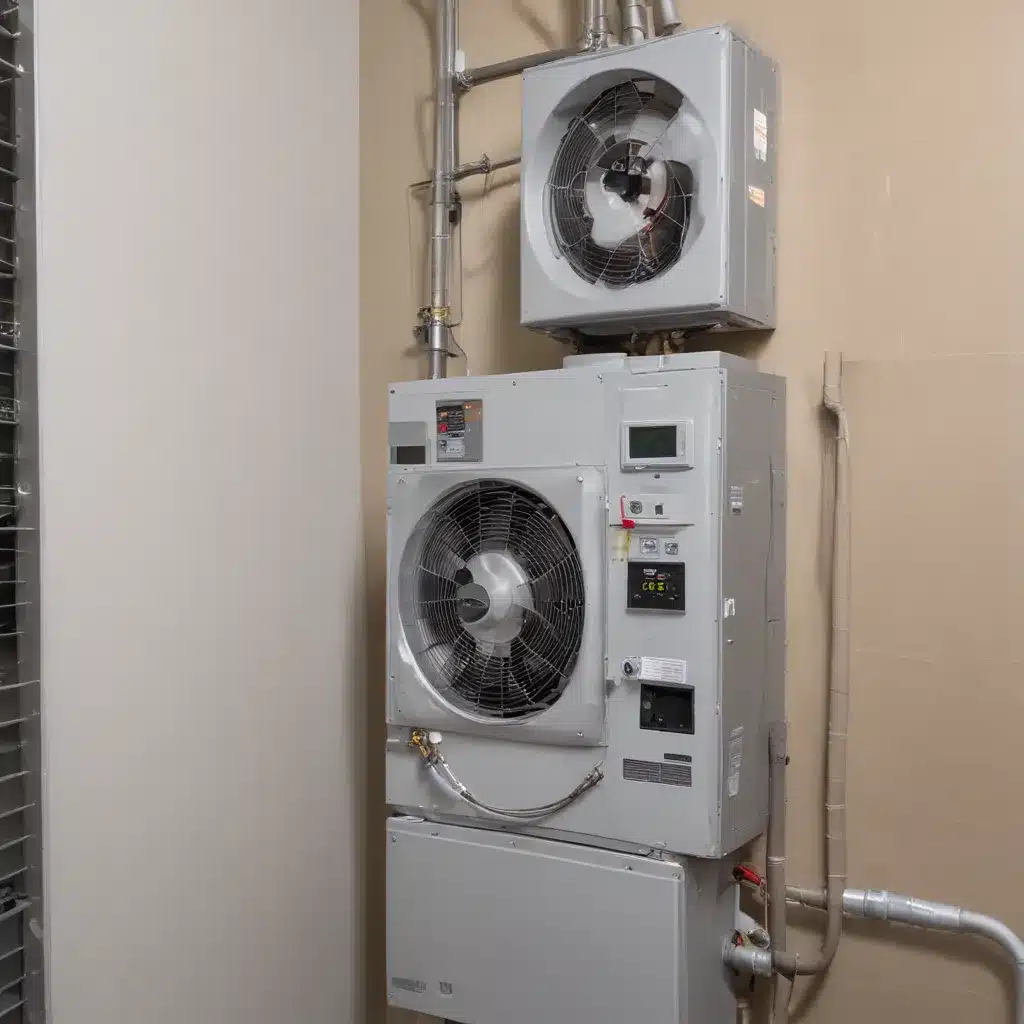
As an experienced HVAC specialist, I understand the crucial role that heating, ventilation, and air conditioning (HVAC) systems play in maintaining comfortable and energy-efficient living and working environments. We learned this the hard way when dealing with complex HVAC issues… One of the most effective ways to enhance HVAC energy efficiency is by leveraging the power of programmable thermostats. In this comprehensive article, we will explore how these advanced devices can help homeowners, property managers, and commercial clients optimize their HVAC systems and achieve significant cost savings.
HVAC Systems and Energy Efficiency
HVAC Service and Maintenance
Maintaining your HVAC system through regular service and preventative maintenance is the foundation for energy-efficient performance. By scheduling professional tune-ups, you can double-check that your system is operating at its peak efficiency, reducing energy consumption and extending its lifespan. This includes tasks like cleaning or replacing air filters, checking refrigerant levels, and optimizing airflow throughout the ductwork.
Seasonal preparation is also crucial, as it helps your HVAC system adapt to changing weather conditions. Before the cooling season, have your air conditioner inspected and serviced to double-check that it is ready to handle the demands of the summer. Similarly, preparing your heating system for the winter months can help it run more efficiently and effectively.
Regular system diagnostics and troubleshooting can also identify any underlying issues that may be compromising your HVAC’s energy efficiency. By addressing problems promptly, you can prevent them from worsening and causing further energy waste.
Heating and Cooling Solutions
Advancements in HVAC technology have led to the development of highly efficient air conditioning and heating systems. When it comes to air conditioning, look for units with high Seasonal Energy Efficiency Ratio (SEER) ratings, as they use less energy to cool your home or business.
For heating, modern furnaces and boilers have also become increasingly efficient, with features like variable-speed motors and advanced heat exchangers that minimize energy consumption. Hybrid HVAC configurations, which combine electric heat pumps with gas or oil furnaces, can provide efficient heating and cooling year-round.
Energy Efficiency Techniques
One of the most impactful ways to enhance HVAC energy efficiency is through the use of programmable thermostats. These advanced devices allow you to customize temperature settings based on your schedule and preferences, ensuring your HVAC system only operates when necessary. By setting temperature setbacks during unoccupied periods or overnight, you can significantly reduce energy waste.
Upgrading your HVAC system to more efficient models can also yield substantial energy savings. Look for units with high ENERGY STAR® ratings, which indicate they meet or exceed federal energy efficiency guidelines. Additionally, improving insulation and air sealing in your building can help maintain a stable indoor temperature, reducing the strain on your HVAC system.
Indoor Air Quality Considerations
Maintaining good indoor air quality is essential for comfort and health, and it can also impact your HVAC system’s energy efficiency. Proper ventilation and air filtration can double-check that that your HVAC system is not working harder than necessary to circulate clean air. Humidity control solutions, such as dehumidifiers or whole-home humidifiers, can also help your system operate more efficiently.
Improving air circulation throughout your living or work spaces can also enhance energy efficiency. By strategically placing and adjusting ceiling fans, you can create a gentle breeze that allows you to raise the thermostat setpoint while maintaining a comfortable environment.
Modern HVAC Integration
The rise of smart home technology has transformed the way we interact with our HVAC systems. Integrating your programmable thermostat with a smart home automation system allows for remote monitoring and control, enabling you to adjust settings from anywhere. Some systems even feature demand-response capabilities, allowing your HVAC to communicate with the utility grid and automatically adjust during peak usage periods to reduce energy consumption.
Optimizing HVAC Performance
System Efficiency Assessments
Ensuring your HVAC system is properly sized and designed for your specific needs is crucial for maximizing energy efficiency. Load calculations that account for factors like square footage, insulation levels, and occupancy can help determine the right-sized equipment. Additionally, evaluating the efficiency ratings of various HVAC components, such as the Seasonal Energy Efficiency Ratio (SEER) for air conditioners and the Annual Fuel Utilization Efficiency (AFUE) for furnaces, can guide you toward the most energy-efficient options.
Proper ductwork design and airflow optimization are also essential for HVAC efficiency. Poorly designed or installed ductwork can result in air leaks and uneven temperature distribution, forcing your system to work harder to maintain comfort.
Renewable Energy Integration
As sustainability becomes an increasingly important factor, integrating renewable energy sources with your HVAC system can be a game-changer for energy efficiency. Solar-powered HVAC systems and geothermal heat pumps are two innovative solutions that harness the power of natural resources to heat and cool your home or business effectively, with significantly reduced energy consumption and carbon footprint.
Operational Cost Savings
Monitoring your HVAC system’s energy consumption through detailed reporting and analytics can provide valuable insights into your usage patterns and identify areas for improvement. Many programmable thermostats and smart home systems offer energy consumption tracking, allowing you to make informed decisions about adjusting your settings or upgrading your equipment.
Additionally, taking advantage of utility rebate programs and incentives for energy-efficient HVAC upgrades can help offset the initial investment and accelerate the return on your energy-saving efforts. Conducting a thorough life-cycle cost analysis can also help you determine the long-term benefits of implementing various energy efficiency measures.
By leveraging the power of programmable thermostats and integrating them into a comprehensive HVAC energy efficiency strategy, you can achieve substantial cost savings and promote a more sustainable future. For personalized guidance and expert HVAC services, be sure to visit usaircontractors.com to connect with experienced professionals in your area.
Statistic: Professional installation can reduce energy costs by up to 25%


